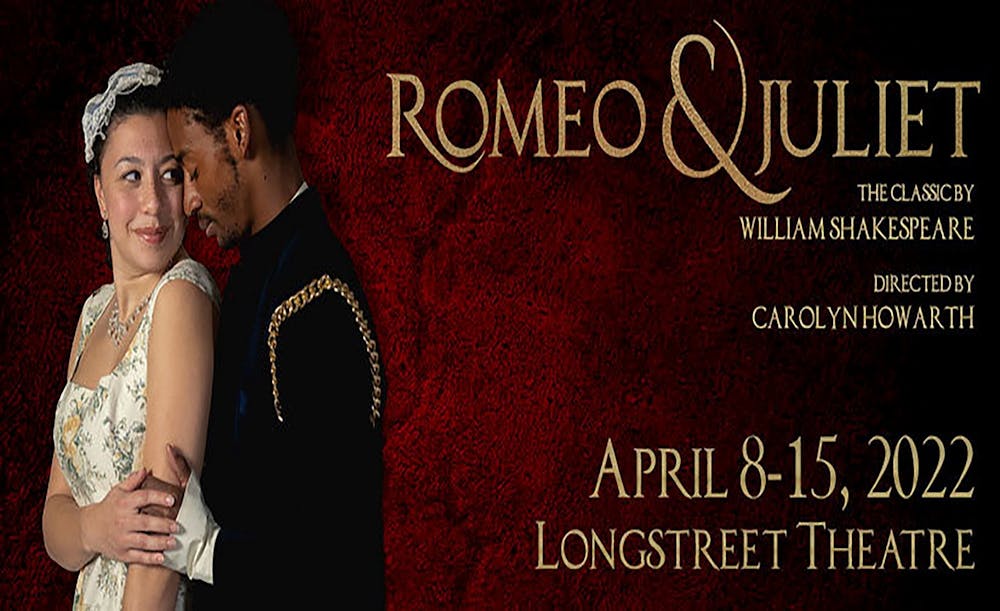The tumultuous relationship between generations will be examined by USC's Department of Theatre and Dance in its production of the Shakespeare classic “Romeo & Juliet.”
The play is directed by renowned professional Shakespeare director Carolyn Howarth and will be performed at the Longstreet Theater from April 8 through April 15. Tickets can be purchased online.
The production team hopes to both liven up to the traditional Shakespeare standard and add a unique spin that will keep audiences who are already familiar with the story entertained. Howarth’s vision is for this rendition to highlight the struggles between the older and younger generations — not just the Montague-Capulet feud.
Graduate student Nate Terracio, the scenic designer for the production, compares the show’s focus to modern concerns like climate change. He says Howarth’s concept of a generation leaving the next to pick up the pieces — as Shakespeare’s characters the Montagues and Capulets have with their feud — is particularly timely.
“The concept of this being told in the play — that terrible things can happen, the consequences of inaction can be terrible — is important,” Terracio said.
Students can relate to the youthful themes of “Romeo & Juliet” not only because of the age similarity to the characters but in their relationships to those in charge.
Third-year theatre major David Alexander feels that the core of the play's story is in the idea that no one takes young people seriously because of their age.
“It was just such a stifling experience that, at least for me, personally, I was glad to finally be free from,” Alexander said.
He said he hopes their interpretation will cause older audience members to rethink whether they’ve treated their children as individuals with their own hearts and minds.
Alexander feels that the story — especially its ending — is so known in our culture that we often downplay it. He said Romeo and Juliet kill themselves because the actions of their parents made it impossible for them to live to their truest selves.
Alexander said he saw a second parallel between what is being portrayed in the show and the outside world. He said he feels that in our country, many problems that have gone unaddressed are now building up, from police brutality to racism.
“It takes, unfortunately, the death of many to inspire anything,” Alexander said.
Alexander said he realized this parallel after seeing the show’s set. Howarth was inspired by the turn-of-the-century era where things looked ornate and radiated wealth, blended with her concept of two generations at odds. Terracio designed a set that looks like it was once beautiful but has since fallen apart.
Terracio said the crew is trying to portray the idea that not only has the older generation let their feud with the other family ruin their children's lives, but wherever you go, things are in disrepair because the older generation is not keeping up their end of the bargain.
“I'm excited for people to get their breath taken away when they walk in,” Terracio said.
The production attempts to maintain a traditional Shakespearean spirit by not fully modernizing the show, but incorporating minor changes to make it more accessible for audiences, according to Alexander.
The costumes are more modern than those in the traditional 15th century era, and the show’s music has a pop/rock remix.
One thing the group keeps unchanged is the traditional sword and knife fights, which will be choreographed by professional fight director Geoffrey Kent.
“Whenever our cast members first saw the first knife fight, there was an audible gasp from them because it looked so real,” Aaliyah Broadwater, a second-year psychology major, said.
Alexander said he is confident this is an interpretation of the famous story that audiences have not seen before. He said audiences will not only be entertained but also gain a "very deep, profound insight."

